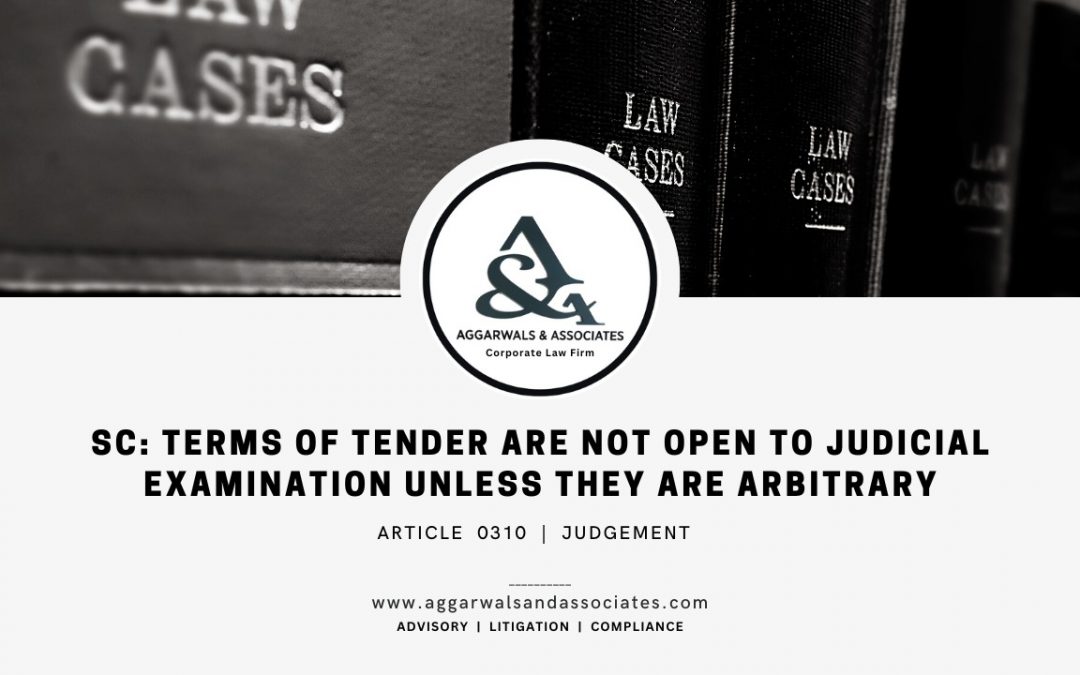The Bench comprising of Justice MR Shah and Justice Krishan Murari on 30th September, 2022, while hearing the case titled as ‘Airport Authority of India Versus Centre for Aviation Policy, Safety & Research (CAPSR) & Others’, quashed the order passed by the Delhi High Court by observing that the Courts cannot interfere with the Tender’s terms prescribed by the Govt. unless these are arbitrary, discriminatory or mala fide.
The Court observed that the Delhi Court had committed a grave error by setting aside the Airport Authority of India (AAI)’s tender stipulations for selecting Ground Handling Agencies, hereinafter referred to as GHAs, at Group D Airports.
The bench cited earlier rulings by the top court and stated that it was noted that the government and its undertakings should have complete discretion in determining the terms of the tender and that the courts would only get involved if the decision was arbitrary, discriminatory, malicious, or biased.
Factual backdrop:
On 01.05.2018 and 02.05.2018 AAI suggested a Request for Proposal (RFP) for exemption of ground handling services at Group ‘A’, ‘B’, ‘C’ airports owned by it on 01.05.2018, and Group ‘D’ respectively. AAI cancelled the tender previously proposed for Group ‘D’ airports and issued a fresh RFP on 28.07.2020 for ‘D1’ airports. These RFPs enclosed the technical as well as financial qualifications to meet the eligibility criteria.
These conditions were challenged by the CAPSR by way of writ petition before the Delhi High Court. On 14th July, 2021 the High Court passed an order in favour of CAPSR, wherein the decision to carry out categorization of 49 airports falling under Group D-1 on the basis of region as well as the condition of prevision work experience in respect of providing GHAs to scheduled aircrafts was struck down by the High Court. Moreover, the High Court also gave its mind that the revised minimum Annual Turnover criterion of INR 18 crores is arbitrary and discriminatory.
Against the aforesaid order, AAI also moved a review petition, which was also junked by the High Court.
Resultantly, AAI knocked the door of the Hon’ble Supreme Court against the aforesaid verdict passed by the High Court.
Top Court’s observations:
The Hon’ble Apex Court has taken viewpoint of the AAI, which was explained before the High Court, into consideration while adjudicating the matter. According to the AAI, there is a rationale behind the grouping of 49 airports into 4 region-wise sub-categorization, evaluation criteria of 36 months experience in last 07 years in providing 03 out of 07 core GHAs and financial condition of having modified annual turnover of 18 crores in any one of previous three years.
The Bench further noted that none of the GHAs, who took participation in the tender process protested against the tender conditions. Additionally, it is required to be take a note of the fact the writ petition before the High Court was in filed by way of Public Interest Litigation. Hence, it is not considerable that how respondent CAPSR (respondent no. 1) would have any locus standi to file the writ petition as it cannot be an aggrieved party.
Significantly, the Bench concluded that the High Court had erred while exercising the powers under Article 226 of the Constitution of India. Since it is well settled law that the terms and conditions of the tender are within the ambit of authority issuing the tender and these are not open to judiciary examination, except, such conditions are arbitrary, prejudiced, or illegal. Therefore, tenderer must have liberty of setting down the terms of the tender.
-Kiranpreet Kaur
Associate at Aggarwals & Associates, S.A.S. Nagar, Mohali


